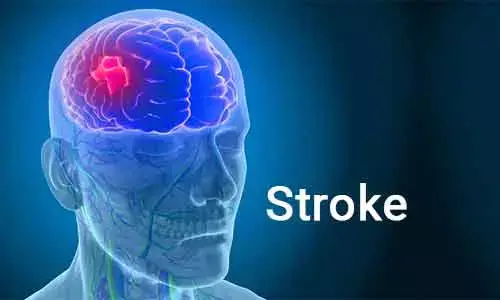- Home
- Medical news & Guidelines
- Anesthesiology
- Cardiology and CTVS
- Critical Care
- Dentistry
- Dermatology
- Diabetes and Endocrinology
- ENT
- Gastroenterology
- Medicine
- Nephrology
- Neurology
- Obstretics-Gynaecology
- Oncology
- Ophthalmology
- Orthopaedics
- Pediatrics-Neonatology
- Psychiatry
- Pulmonology
- Radiology
- Surgery
- Urology
- Laboratory Medicine
- Diet
- Nursing
- Paramedical
- Physiotherapy
- Health news
- Fact Check
- Bone Health Fact Check
- Brain Health Fact Check
- Cancer Related Fact Check
- Child Care Fact Check
- Dental and oral health fact check
- Diabetes and metabolic health fact check
- Diet and Nutrition Fact Check
- Eye and ENT Care Fact Check
- Fitness fact check
- Gut health fact check
- Heart health fact check
- Kidney health fact check
- Medical education fact check
- Men's health fact check
- Respiratory fact check
- Skin and hair care fact check
- Vaccine and Immunization fact check
- Women's health fact check
- AYUSH
- State News
- Andaman and Nicobar Islands
- Andhra Pradesh
- Arunachal Pradesh
- Assam
- Bihar
- Chandigarh
- Chattisgarh
- Dadra and Nagar Haveli
- Daman and Diu
- Delhi
- Goa
- Gujarat
- Haryana
- Himachal Pradesh
- Jammu & Kashmir
- Jharkhand
- Karnataka
- Kerala
- Ladakh
- Lakshadweep
- Madhya Pradesh
- Maharashtra
- Manipur
- Meghalaya
- Mizoram
- Nagaland
- Odisha
- Puducherry
- Punjab
- Rajasthan
- Sikkim
- Tamil Nadu
- Telangana
- Tripura
- Uttar Pradesh
- Uttrakhand
- West Bengal
- Medical Education
- Industry
Increased Insulin resistance may delay recovery in non-diabetic stroke patients: Study

South Korea: Researchers have found in a new study that Insulin resistance measured by the HOMA-IR index was associated with the poor functional outcome of non-diabetic stroke patients.
Therefore acute ischemic stroke patients with normal blood sugar levels should be evaluated for insulin resistance, finds a recent study in the journal Scientific Reports. However, according to the authors, these data will need to be replicated in larger cohorts.
Insulin resistance is associated with the occurrence of atherosclerotic disease and stroke. However, there is a lack of clarity on the relationship between insulin resistance and the prognosis of acute ischemic stroke in non-diabetic patients. Kyungmi Oh, Korea University Guro Hospital and Korea University College of Medicine, Seoul, South Korea, and colleagues hypothesized that insulin resistance might affect short-term functional recovery after acute ischemic stroke in non-diabetic patients.
The study enrolled 1377 consecutive patients with acute ischemic stroke from a prospectively maintained stroke registry between May 2014 and December 2016. 517 patients were included in the study after excluding patients with transient ischemic attacks (TIA), pre-stroke disabilities, diabetes mellitus, and patients with incomplete evaluations
The homeostasis model assessment of insulin resistance (HOMA-IR) score was used to evaluate the degree of insulin resistance.
Key findings of the study include:
- The patients with the highest quartile of log HOMA-IR index scores were younger and had higher fasting blood glucose, total cholesterol, triglycerides, low-density lipoprotein, and HbA1c levels.
- Multivariable logistic regression analysis revealed that log HOMA-IR scores were independently associated with poor prognosis after adjusting for age and sex and p < 0.1 in univariable analysis.
- Insulin resistance was associated with the poor functional outcome of non-diabetic stroke patients.
"Insulin resistance measured by the HOMA-IR index was associated with the poor functional outcome of non-diabetic stroke patients," wrote the authors. "This finding may strengthen the need to treat insulin resistance itself in acute ischemic stroke patients with blood glucose levels within the normal range."
The study titled, "Insulin resistance is associated with poor functional outcome after acute ischemic stroke in non-diabetic patients," is published in the journal Scientific Reports.
DOI: https://www.nature.com/articles/s41598-020-80315-z
Dr Kamal Kant Kohli-MBBS, DTCD- a chest specialist with more than 30 years of practice and a flair for writing clinical articles, Dr Kamal Kant Kohli joined Medical Dialogues as a Chief Editor of Medical News. Besides writing articles, as an editor, he proofreads and verifies all the medical content published on Medical Dialogues including those coming from journals, studies,medical conferences,guidelines etc. Email: drkohli@medicaldialogues.in. Contact no. 011-43720751


